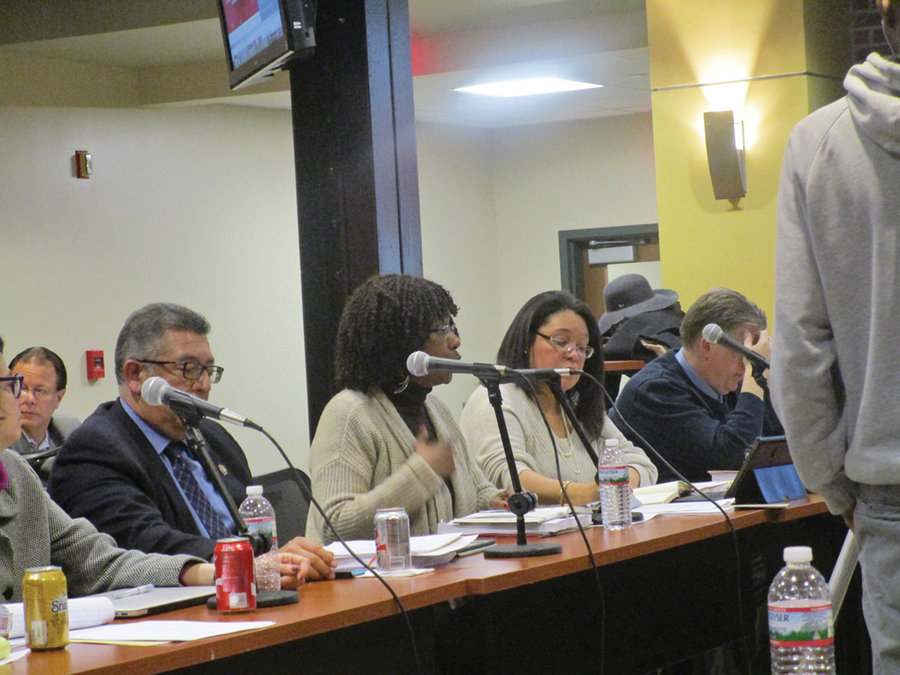The Jersey City Board of Education adopted a policy on Feb. 19 that will allow students – with parental approval – to opt out of stringent new state tests that measure academic progress. Schools Superintendent Dr. Marcia Lyles said the board does not endorse avoiding the tests, but the new policy gives the district options on how to respond if parents allow their children to skip the tests.
Students in some New Jersey districts began taking the tests on Friday, but most will not take them until March. Jersey City’s students are scheduled to take the tests this week. If a student presents written permission from their parents to opt out they will be transferred to an “alternate educational environment,” according to the language of the policy.
The policy does not spell out what an “alternate educational environment” means. The board says they’ll let the principal in each school decide how to respond to students who opt out of the tests.
The policy is the board’s response to complaints from parents that the tests are much more difficult than previous tests that assessed a student’s academic progress. Nationwide, even some educators have complained about having to “teach to the test.”
For the 2014 – 2015 school year, the required statewide assessments for students in grades three through 12 are called Partnership for Assessment of Readiness for College and Careers, aka, the “PARCC Assessments.”
A number of states collaborated to produce the PARCC, which are a common set of computer-based assessments aligned to the Common Core State Standards (CCSS) that measure whether students are working at expected levels and are on track for post-secondary school success.
The PARCC tests are considered so much more difficult that some parents have sought relief for their children.
Since the tests are mandated by the state, and board members are obligated to follow state requirements, the board, according to President Vidya Gangadin, cannot encourage kids to opt out.
If students do opt out, however, that could cost the district a loss of state and federal aid since the tests, part of a program to elevate the district’s educational standards, are part of a federal mandate.
Disagreement among members
Former Board President Sangeeta Ranade said she opposed the policy change because she did not want to encourage students to opt out. However, the controversy comes at a time when the state is considering suspending the test for three years.
Students are required to take these tests at least once in high school in order to meet the minimum requirements for graduation. What is not known is how opting out of the tests will affect a student’s ability to qualify for high school Advanced Placement programs for which they receive college credits.
The statewide assessments are a graduation requirement for high school students and a valuable indicator of student progress, according to the policy adopted.
“A parent or guardian who chooses to withdraw a student from any state-required assessment must advise the chief school administrator, in writing, of their decision to withdraw the student from the examination,” the new policy says. “Students withdrawn from testing with parental approval and written notice will be placed in an alternate educational environment. By withdrawing from the statewide examinations, parents and guardians acknowledge that their refusal may negatively impact the student regarding the completion of statewide examinations as required by the Department of Education and appeals to any determinations from the withdrawals are beyond the jurisdiction of the Board of Education and must be made directly to the Department of Education.”
“Nobody is telling them not to take the test,” Lyles said. “This is to say, if someone comes in and say they’re not taking the test, we have a policy.”
Lyles said the PARCC tests do not affect graduating students in 2015, but students graduating in 2016 must pass the test in language arts and math.
Lyles said fear of the test may be exaggerated. Many students are better prepared than they think.
“But at this point, we don’t yet know what passing and failing will be,” she said. “Students will not be held back as a result of the scores.”
Al Sullivan may be reached at asullivan@hudsonreporter.com.
